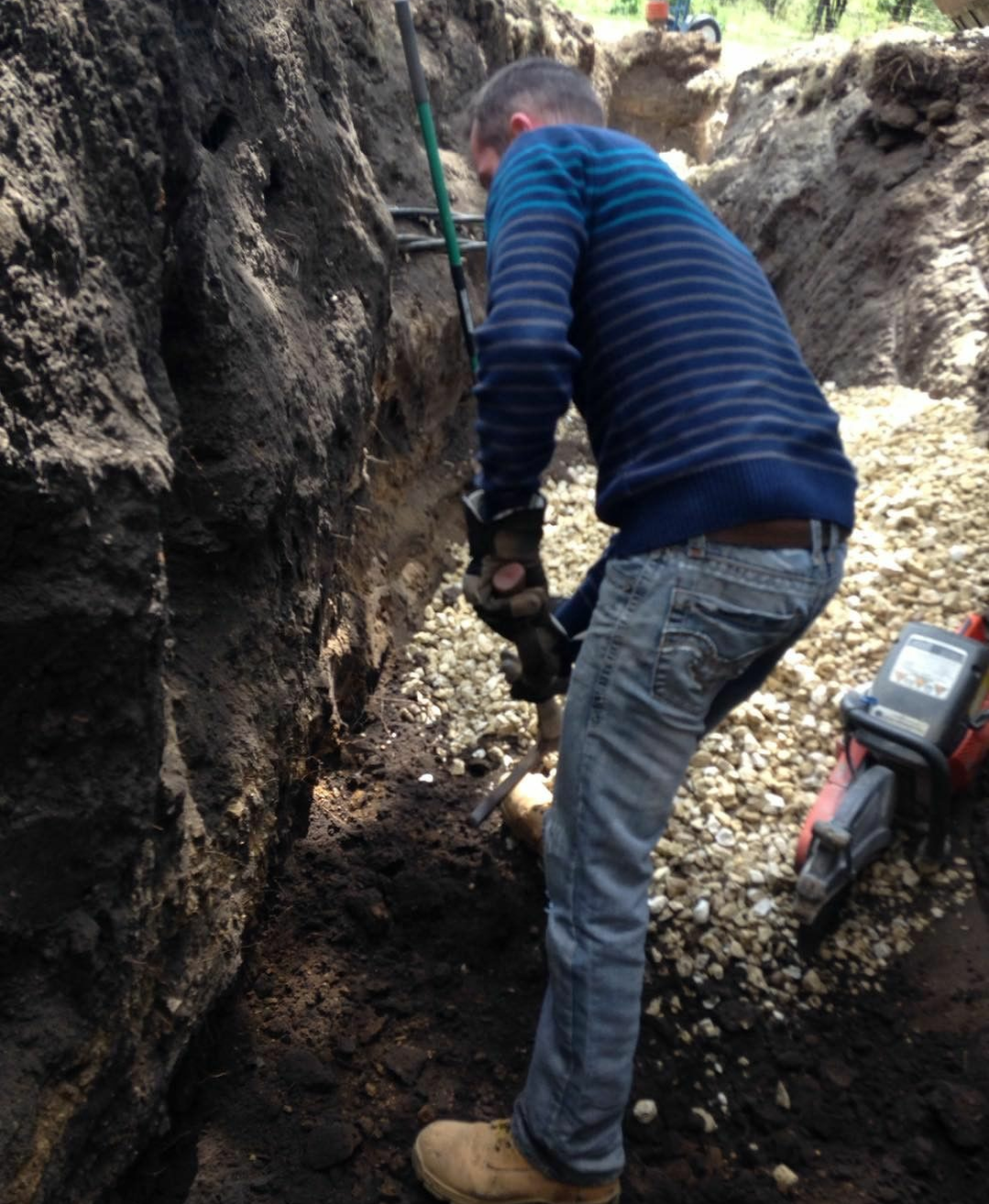DO NOT MAKE A 20K (NEW SEPTIC REPLACEMENT) MISTAKE BY SELECTING THE CHEAPEST INSPECTOR YOU CAN FIND- SOME ARE FAILING SEPTIC SYSTEMS SO THEY CAN INSTALL A NEW ONE. I FIND AND FIX WHAT YOU HAVE. Please keep reading below. ( Iowa inspection code 567 chapter 69)
State Certified Inspector
A-1 Waste Water Solutions owner, Corey Groth, is a state certified inspector that can perform a Iowa Time of Transfer inspection when selling your home. If your septic system does not meet the inspection FAD criteria, he can also consult (and repair as needed) how to make your septic system compliant- OFTEN TIMES WITHOUT NEEDING to replace the entire septic. (Per county Ordinance)
Iowa law requires at least 4 items for an Inspection- without all four someone may have a legal action case against you -sometimes years later.
1- All tanks dug up and pumped- Distribution box opened- Sand filter vents and discharge found- and an Effluent test on any discharging system
2- Written narrative report
3- As built Map
4- A properly calculated load test from the sites water supply and probing.
We are using the NEW IDNR digital database for inspections, your report is guaranteed to be submitted. (March 2022)
Currently most inspections do not have all four of these items and pictures to be used as a reference! Rest assured, you will have a proper inspection completed by me! Don't end up in court over litigation, no one wants to be there. Let me help you save money by finding your septic system!
Need your Private well tested a Home Sale? I can submit to a Hygienic Lab for $75 the same day. Rushed well samples/ septic inspections are available, additional fees.
Iowa law requires at least 4 items for an Inspection- without all four someone may have a legal action case against you -sometimes years later.
1- All tanks dug up and pumped- Distribution box opened- Sand filter vents and discharge found- and an Effluent test on any discharging system
2- Written narrative report
3- As built Map
4- A properly calculated load test from the sites water supply and probing.
We are using the NEW IDNR digital database for inspections, your report is guaranteed to be submitted. (March 2022)
Currently most inspections do not have all four of these items and pictures to be used as a reference! Rest assured, you will have a proper inspection completed by me! Don't end up in court over litigation, no one wants to be there. Let me help you save money by finding your septic system!
Need your Private well tested a Home Sale? I can submit to a Hygienic Lab for $75 the same day. Rushed well samples/ septic inspections are available, additional fees.

24/7 Scheduling
$449* - Iowa Certified Septic Inspection- with Narrative/photo Report (Normally $700.00)
*IowaOne call IS CONTACTED BY ME AND will locate main utility lines coming into home ( power, natural gas, phone, cable) but All private utilities (dog fence, detached building power-water drops, LP, power) must be marked prior to inspections. If private utilities are not marked properly and a utility line is hit during the inspection/digging process additional costs will be incurred. Will restore landscaping to original condition to the best of our ability or spread grass seed on some sites. Septic tanks are required to be pumped or cleaned out every 3 years, if this is not the case I can recommend a IDNR approved pumper and coordinate. (additional fee for pumping). Price reflects a $50 gift card for a google review.
$199 - Video Inspection of Pipes- Troubleshoot problems
ARE YOU BUYING A HOUSE IN TOWN? Do you have concerns if your WASTE DRAIN system is working properly? We can checkout the inside of the drain pipes that are accessible to ensure the proper pipe grade or check for other issues.
$250* - Contractor Inspection (No Digging)
This choice is for digging contractors who have all necessary primary and secondary treatment systems exposed. If you are a home owner please do not select this without talking to me. This appointment requires that necessary components are exposed prior to Iowa TOT arriving and is only for individuals that know exactly where and what needs to be dug up- does not include effluent testing if needed.
$59 - Radio detection- Locate all known buried lines (Power drops, LP, satellite, dog fence, lawn irrigation)
$1250- Get My Expert Opinion. Consulting is available for septic system problems. This is strategic advice about your sites septic system that is presented for consideration and decision-making in litigation cases. Let me show your attorney what other inspectors are missing.
Contact me with email. Plus travel expenses to any county in Iowa
Providing trustworthy and reliable service is of utmost importance to me. I understand how important a properly functioning septic system is for your home or business. I have been installing, repairing and performing TOT inspections on septic systems for the past 26 years in the Delaware, Dubuque, Jackson, Scott, Clayton, and Linn Counties." |


